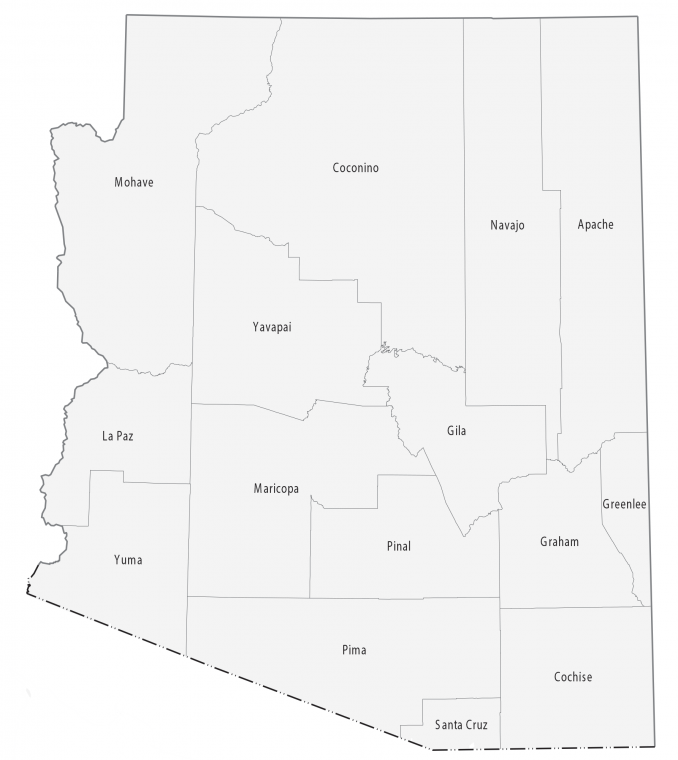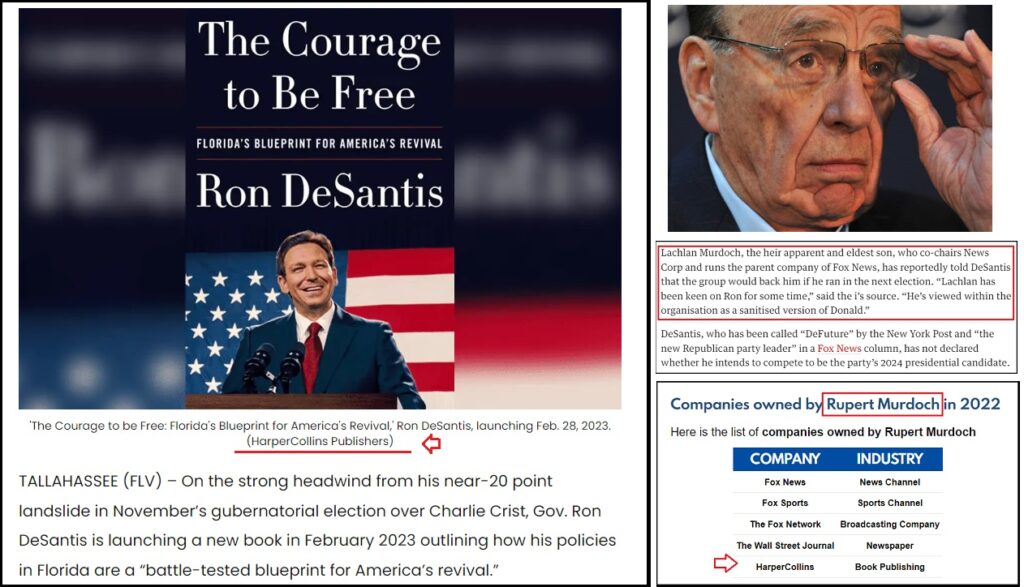The "garcia minus hobbs" column shows the increase in the Democrat "vote" from 2018 to 2022 [a negative number].
The "hobbs divided by garcia" column shows the percentage increase in the Democrat "vote" from 2018 to 2022.
The "douchey minus Lake" column shows the increase (or decrease) in the Republican vote in that county from 2018 to 2022.
The "Lake divided by douchey" column shows the percentage increase (or decrease) in the Republican vote in that county from 2018 to 2022.
Note that the percentages for "Hatie" Hobbs never get anywhere near less than 100+% of the Garcia 2018 "vote", whereas Kari Lake's votes dip below Douchey's 2018 votes in about half of the counties.
This is unusual.
If a candidate is less popular than the previous party candidate, you'd see it across ALL the counties.
That didn't happen here. Of course, Lake took major divots in her turnout in the Democrat/Assistant Democrat-controlled counties.
The interesting thing will be delving into those other counties. Hopefully, Arizona freepers will be able to help shed light on some of these counties.
When it comes to the private corporations in American politics known as the Republican National Committee (RNC) and the Democrat National Committee (DNC), there is a common misconception that the corporations represent the voters, they do not.
The RNC and DNC corporations represent their interests, which are not necessarily in alignment with the interests of the unpaid voluntary participants, the voters. As a consequence, when a lawyer is hired by the RNC they are not representing the candidate or voter, they are representing the interests of the corporation. A big difference.
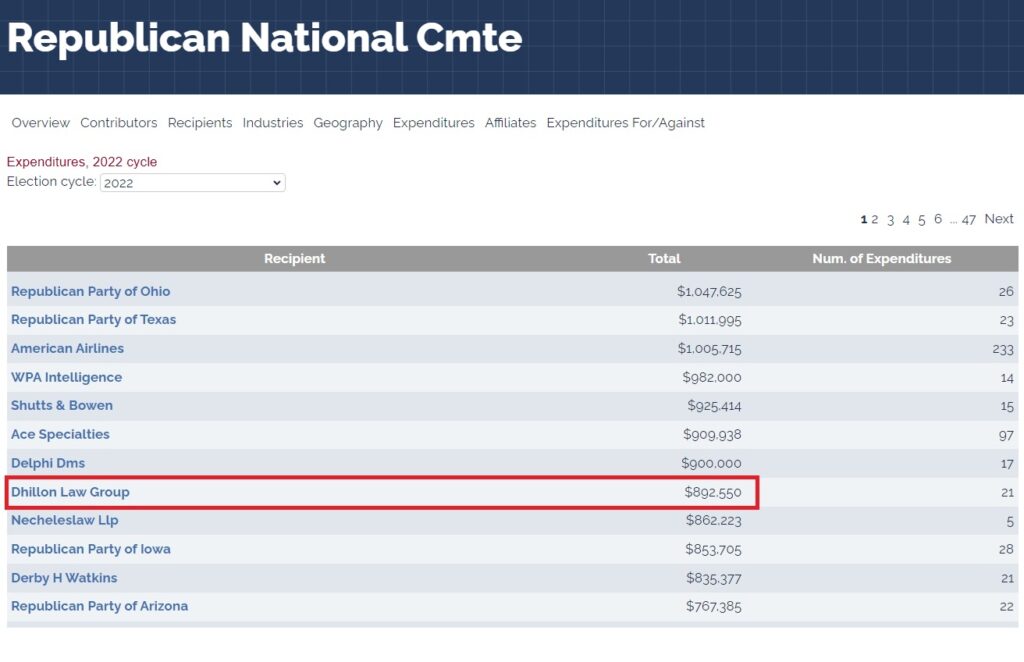
The RNC is the client, the candidate is a secondary consideration, the voter is ancillary to the primary interest. In the example above, the RNC lawyer has been paid $892,550 through the end of September 2022, to represent the interests of the corporation.
It is entirely possible for the RNC contracted lawyer to succeed in fulfillment of the client goal, yet the candidate and voters lose. Remember, the corporation is paying to have their interests represented. If the interests of the corporation are not in alignment with the interests of the candidate/voter, the client interest supersedes.
Legal success is found in representing the interest of the RNC, not the candidate. Once, that success is achieved, the legal team move to the next objective as instructed by the corporation.
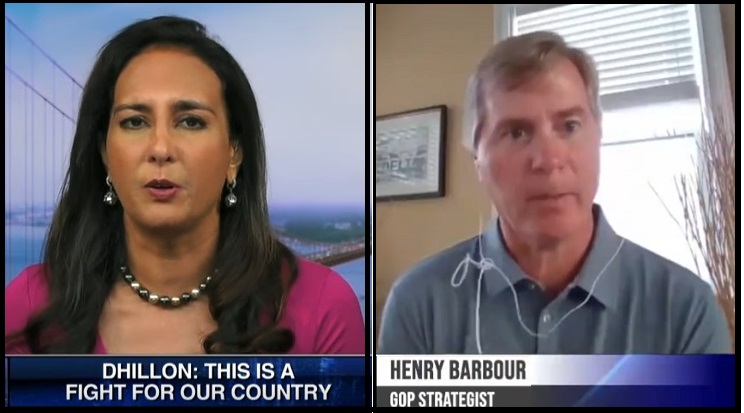
There are two private corporations representing Republicans and Democrats; they are most commonly referred to as political parties. There is no basis for the existence of private political parties in the United States constitution. Both parties’ function from a position as private interests outside the framework of government.
What we commonly refer to as ‘politicians’ are selected representatives to the government from each of the corporations. What we commonly refer to as ‘primary elections’ are suggestions to each of the corporations from citizens expressing their preference for the representative. The corporation can individually choose to accept or decline the suggestion from the voters, and the only thing that binds the corporation to follow the suggestion are the corporate rules.
The corporation of the RNC and DNC exist to serve their own interests.
Politics is the RNC and DNC business; however, the income stream -the financial aspects to the business- is what holds influence over the corporate priority. Ideology is part of the equation, but control of the business and generating revenue is the main function of the corporation. Unfortunately, in the reality of the business model, election outcomes are downstream from those two priorities.
It is with this corporate baseline in mind that all ‘election’ political analysis should take place.
The economics of the thing is what Republican officers in the RNC emphasize.
Without money, the corporate mission doesn’t operate. Without money the RNC members -essentially board members- do not function, hold meetings, assemble, or participate in the organization. Therefore, from the standpoint of the corporation, the business of politics (corporate donor inputs) drives the activity, not election results (outputs).
This facet to U.S. politics is rarely discussed because the corporations and the people who run them do not want this process emphasized. However, if voters do not comprehend this dynamic, they can fall victim to the fallacy of false representative choice.
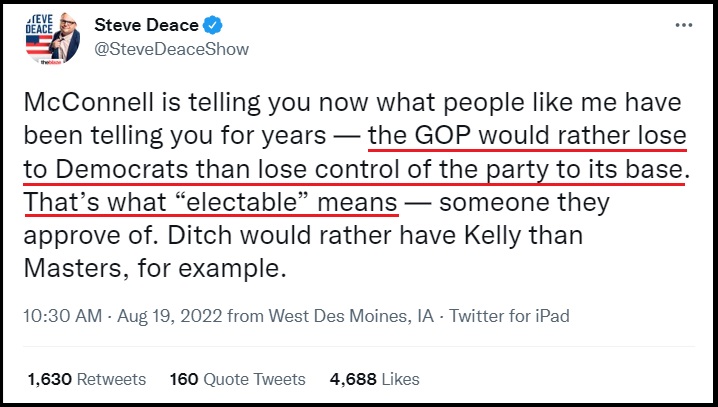
The corporation is made up of members. The members make the rules. The members have preferences and ideological outlooks about the objective of the corporation as part of their position within it. Inside this dynamic is where you see the changing of rules to benefit the preferences of the members; ultimately influencing outcomes.
Unlike most political sites, CTH watches this inside club dynamic closely, because ultimately it explains a lot of ‘consequences’ that we see later discussed. It is easier to just sit back and discuss the consequences than it is to watch the officials inside the club make rule changes proactively. However, it is by watching the rule changes that we can see the roadmaps of influence within game as played by both RNC and DNC corporations.
Any political commentary that does not take this private club dynamic into consideration, and/or explain the consequences from decisions within the club, is not serving the interests of the American electorate.
Some RNC members support MAGA, some do not. Some RNC members support the Wall Street alignment, some do not. Some members support the populist movement, others do not. Some RNC members support a big tent approach to a working-class coalition, other RNC members regard the working-class as beneath their representative interests. The key point is that it’s a private club making these decisions.
The majority decision from within the club membership vote will determine each outcome(s). Donald Trump may have earned 100 million voters and supporters, but only 168 unelected members and party officials will determine what that means to their corporate agenda.
There is no guarantee the America First agenda of Donald Trump is in alignment with the 2022, 2023 priorities of the club.
Factually, all recent suggestions from the club control officers, the billionaire Wall Street donors like Ken Griffin, all suggest the removal of Trump and the MAGA agenda from association with the RNC Club should be the priority of the assembly. The dynamic of financial influence, income to the corporation, changes the entire mechanism of the outcome.
An ideological alignment of individual people, institutions and organizations working in concert toward a common goal is not a conspiracy.
...”He wants to improve the diversity of the GOP and blunt the vein of populism that has complicated the party’s relationship with the corporate world — two things he’s consulted with House Minority Leader Kevin McCarthy about.”… (link)
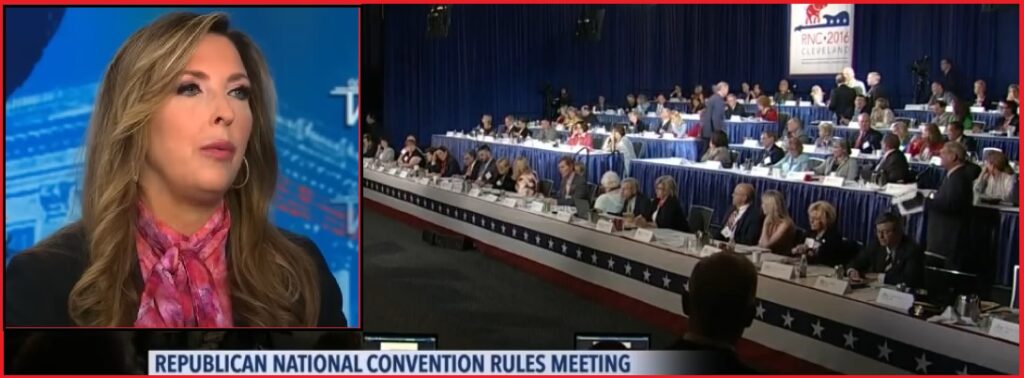

RNLA ⚖️
@TheRepLawyer
RNLA Chair @pnjaban continues to be an important voice for Republicans. She has been tapped by RNC Chair Ronna McDaniel to co-lead an effort reviewing the midterms with RNC Committeeman Henry Barbour as part of the Republican Party Advisory Council.
I am going to continue outlining the 2023 and 2024 political club landscape. Much of the continued exposing will be on a granular, cited and difficult to accept level. Yet it becomes necessary because we need to see the strings on these GOPe marionettes if we are going to avoid the “illusion of choice” that each component element, RNC, GOP, RGA, RCCC, is constructing for us.
Normally, I would avoid such a “tripwire” outline before the 2023 RNC Winter Meeting this upcoming Jan. However, I have also vowed to deconstruct the pretending with brutal -and yes, difficult to accept- honesty; so, firstly the timing is not of my choosing. Secondly, CTH will once again be assembling the humint resources to extract the political conversations that GOPe leadership inside those meetings do not wish to see exposed.
*****
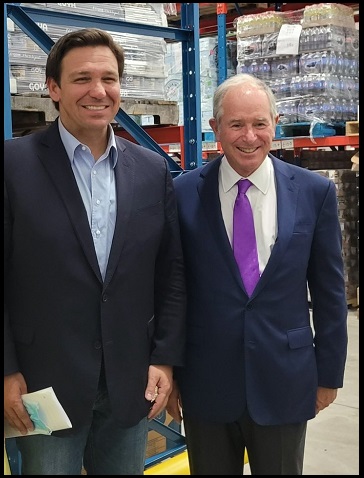
WASHINGTON/NEW YORK, Nov 16 (Reuters) – Blackstone Inc (BX.N) Chief Executive Stephen Schwarzman [pictured right], who has been one of Wall Street’s biggest donors to Donald Trump’s election campaigns, said on Wednesday he will not back the former president in 2024.
Trump announced he would run in the 2024 U.S. presidential election on Tuesday, launching an early bid to become the Republican nominee in an effort to pre-empt potential rivals.
Schwarzman said it was time for new party leadership and that he would back a different Republican in the presidential contest. “It is time for the Republican Party to turn to a new generation of leaders and I intend to support one of them in the presidential primaries,” he said in a statement, which was first reported by Axios.
Schwarzman, 75, is a prominent Republican donor. He spent $35.5 million to support Republicans ahead of last week’s midterm election. Republicans are still one seat short of capturing control of the U.S. House of Representatives and have failed to take over the U.S. Senate. (more)

NEW YORK – Rupert Murdoch has reportedly warned Donald Trump his media empire will not back any attempt to return to the White House, as former supporters turn to the youthful Florida governor Ron DeSantis.
After the Republican party’s disappointing performance in the US midterm elections, in particular the poor showing by candidates backed by Trump, Murdoch’s rightwing media empire appears to be seeking a clean break from the former president’s damaged reputation and perceived waning political power.
[…] “We have been clear with Donald. There have been conversations between them during which Rupert made it clear to Donald that we cannot back another run for the White House.”
[…] Lachlan Murdoch, the heir apparent and eldest son, who co-chairs News Corp and runs the parent company of Fox News, has reportedly told DeSantis that the group would back him if he ran in the next election. “Lachlan has been keen on Ron for some time,” said the i’s source. “He’s viewed within the organization as a sanitized version of Donald.” (read more)
Once you see the strings on the corporate marionettes, it’s impossible to return to that moment in the political performance when you did not see them.
Wall Street -vs- Main Street.





